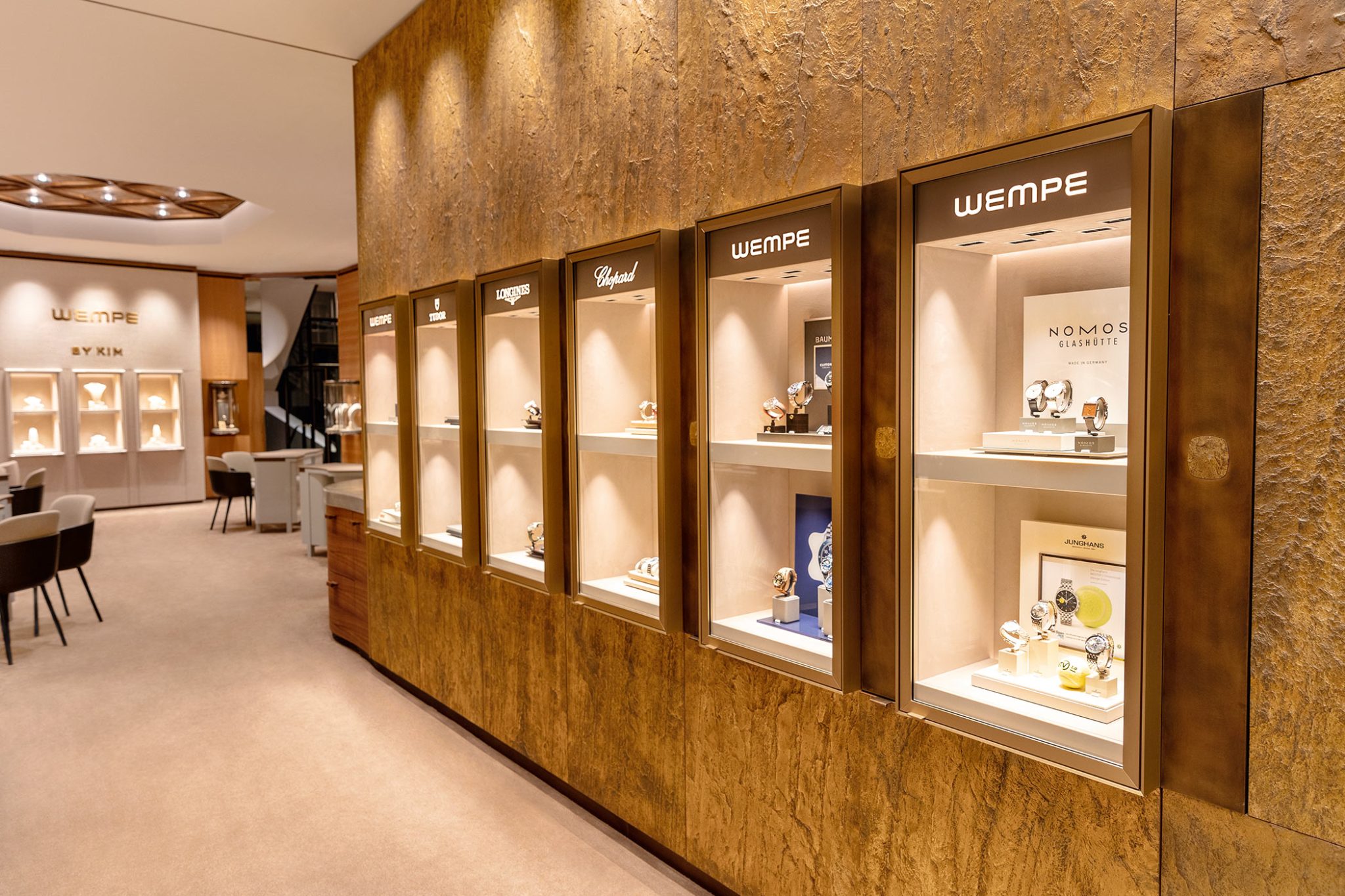Swisswatches presents 24 horological highlights to emerge from the ever-surprising Swiss watch industry in 2023.

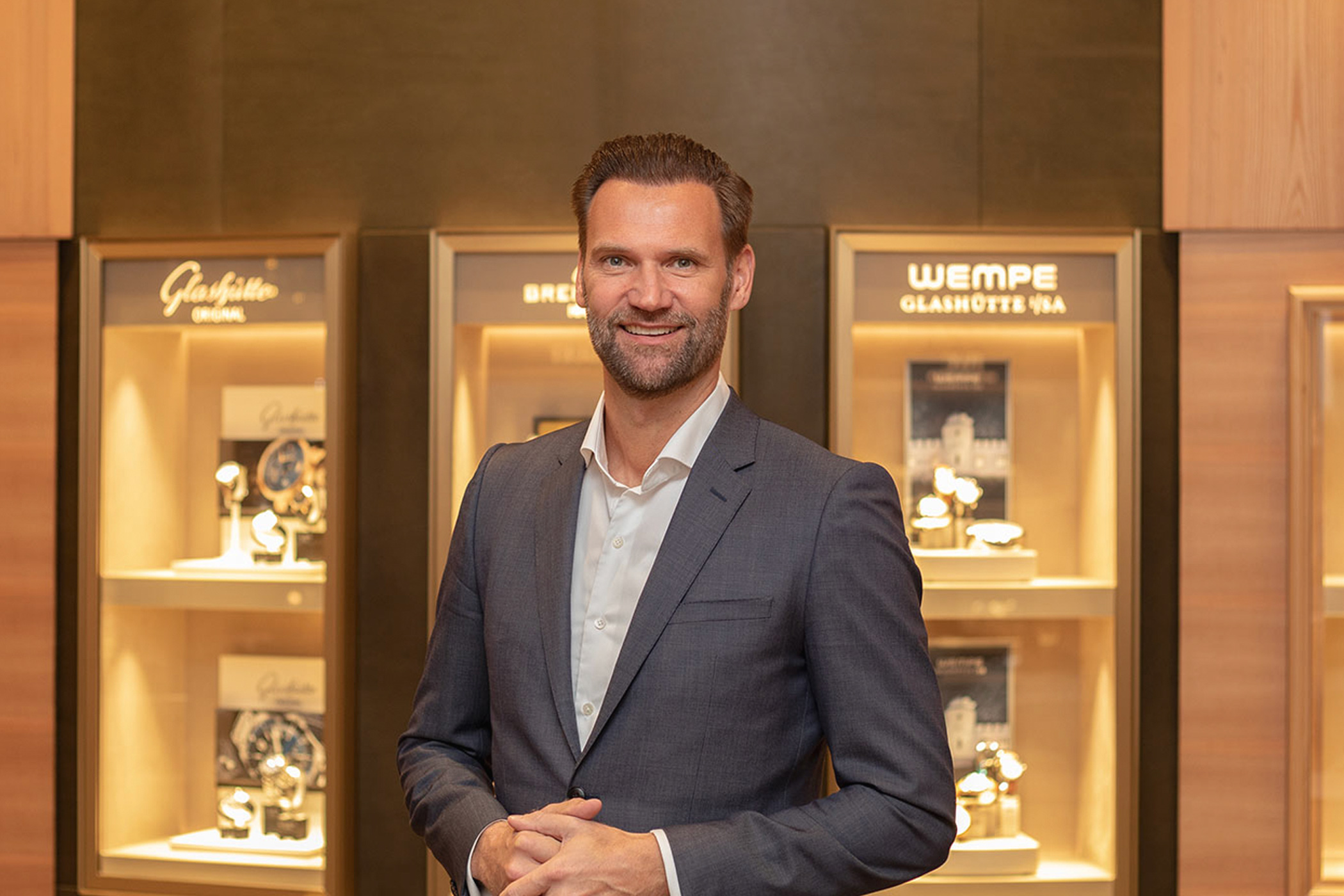
The Wempe branch on Munich’s Weinstrasse has been an integral part of the city for half a century, and has been managed by Marc Autmaring since 2009. Over the past 14 years, the engaging and determined manager has succeeded in further developing the location, tapping into new target groups and promoting close cooperation with renowned watch brands. We met him for an interview in which he not only gave us an insight into the world of one of Germany’s most renowned jewellers, but also fresh perspectives on the luxury goods sector.
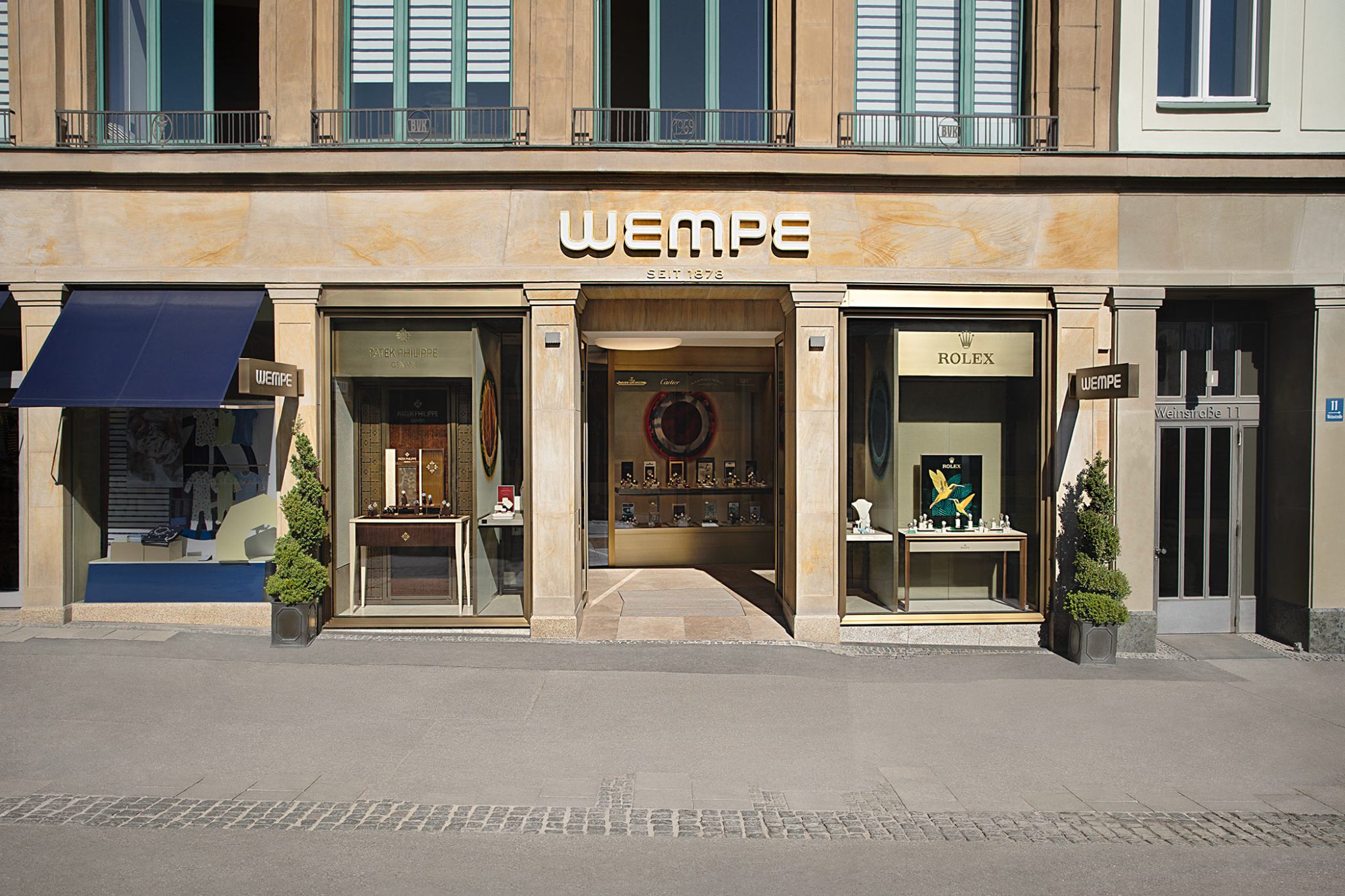
Wempe’s store on Munich’s Weinstrasse celebrates its 50th anniversary
Wempe Weinstrasse is celebrating 50 years, and you have been with Wempe for almost half of that time. What changes have you noticed during your time at the company?
I have been working at Wempe since 15 November 2001, which was my first day at work. Of course, a lot has happened in the industry since 2001 and we’ve seen very dynamic developments that one could never have foreseen. The role of luxury goods has changed fundamentally compared to when I started my career. In the past, buying luxury goods was either about rewarding personal success or celebrating a special event, whereas today it’s often about the question: will the product retain its value and have I invested my money well?
I think this development is a shame, and I often mention it in conversations about sales. I think it’s important to put the focus back on watchmaking and its aesthetics. I would like customers to buy their watches with these aspects in mind and not for the reason of an investment or speculative object.
Could the limited attractiveness of current investment opportunities have something to do with this?
Yes, and the last five years have only reinforced this trend. Due to Covid, interest rate policy, and various other global influences, many wealthy people didn’t know what to do with their money. The right alternative – or so it seemed to many – was to invest in luxury goods. This in turn led to a complete surplus in demand, which resulted in a sharp rise in value. But emotions should actually be the trigger for buying a luxury product.
Does this trend only apply to watches or also to jewellery?
This trend is of course also reflected in jewellery and in the prices of precious metals. Traditional investments such as gold are gaining traction again. I recently sold a silver bar for the first time – I don’t think I’d ever had this request before in my professional life. But precious stones such as diamonds, which are naturally sourced and were used as a way of payment in the past, are also increasingly in demand as investments on the financial markets become more uncertain.
You have spent most of your professional career at Wempe. What is the reason for your loyalty to the company?
Wempe is not only my first, but also my longest-standing employer – a fact that may come as a surprise at first glance. After completing a banking apprenticeship and a degree, I was looking for experience and was attracted by Wempe’s reputation as an industry leader. Starting in Munich, I wanted to gain an insight and, thanks to my previous education and family background – my parents had a jewellery business – I quickly found myself well-integrated and challenged. After a short time, I took on more responsibility and within a year and a half, I was Deputy Managing Director at the Munich Maximilianstrasse Wempe site. I moved on to New York, where I again took on the role of a salesperson and was able to gain experience abroad. The next stop was the branch in Frankfurt, where I finally took over the position of Managing Director.
To be honest, my original plan was completely different: I wanted to learn as much as possible as quickly as possible and then take over my father’s jewellery business. At that time, it was clear that the major watch brands would predominantly prefer locations in large urban centres in the near future. Then came the offer from Kim-Eva Wempe to take over at Munich’s Weinstrasse store.
I was faced with the choice of taking over my father’s business or signing a contract with Wempe. The choice fell in favour of the family business Wempe. I appreciate the company’s core values: the freedom, the room for personal development, the personal interests that a managing director can bring to the table and the individual style. It still fascinates me today.
What makes Wempe unique compared to its competitors? What does Wempe have that makes it stand out?
The clear unique selling point lies in the philosophy of the Hamburg-based family business, which we still adhere to. The advantage is short distances thanks to flat hierarchies and quick decisions. These aspects give each Wempe dependence an individual touch. Every business is different, every business has its own unique spirit.
In comparison to group-controlled competitors, who have far stronger control mechanisms, we focus on a freer atmosphere. In the jewellery sector, for example, this allows us to respond more specifically to individual customer requests and implement them promptly, which is handled less flexibly by large jewellery brands. Our own jewellery production in southern Germany offers the necessary adaptability and short distances. We will never give up this flexibility.
In the Swiss Watch Industry Study 2023 conducted by Deloitte, 62 percent of the managers and industry experts surveyed stated that offline sales will remain ahead of online sales in the next five years – do you share this view?
Absolutely. Fortunately, we live in a world in which, in my opinion, personal advice will even become more important again. That’s my experience from all the sales meetings we have. Customers will always click on products in a certain price range online, and that may also increase in terms of overall volume. But above a certain price category, we realise increasingly that personal, objective advice on products is important and that customers are looking for this personal contact again.
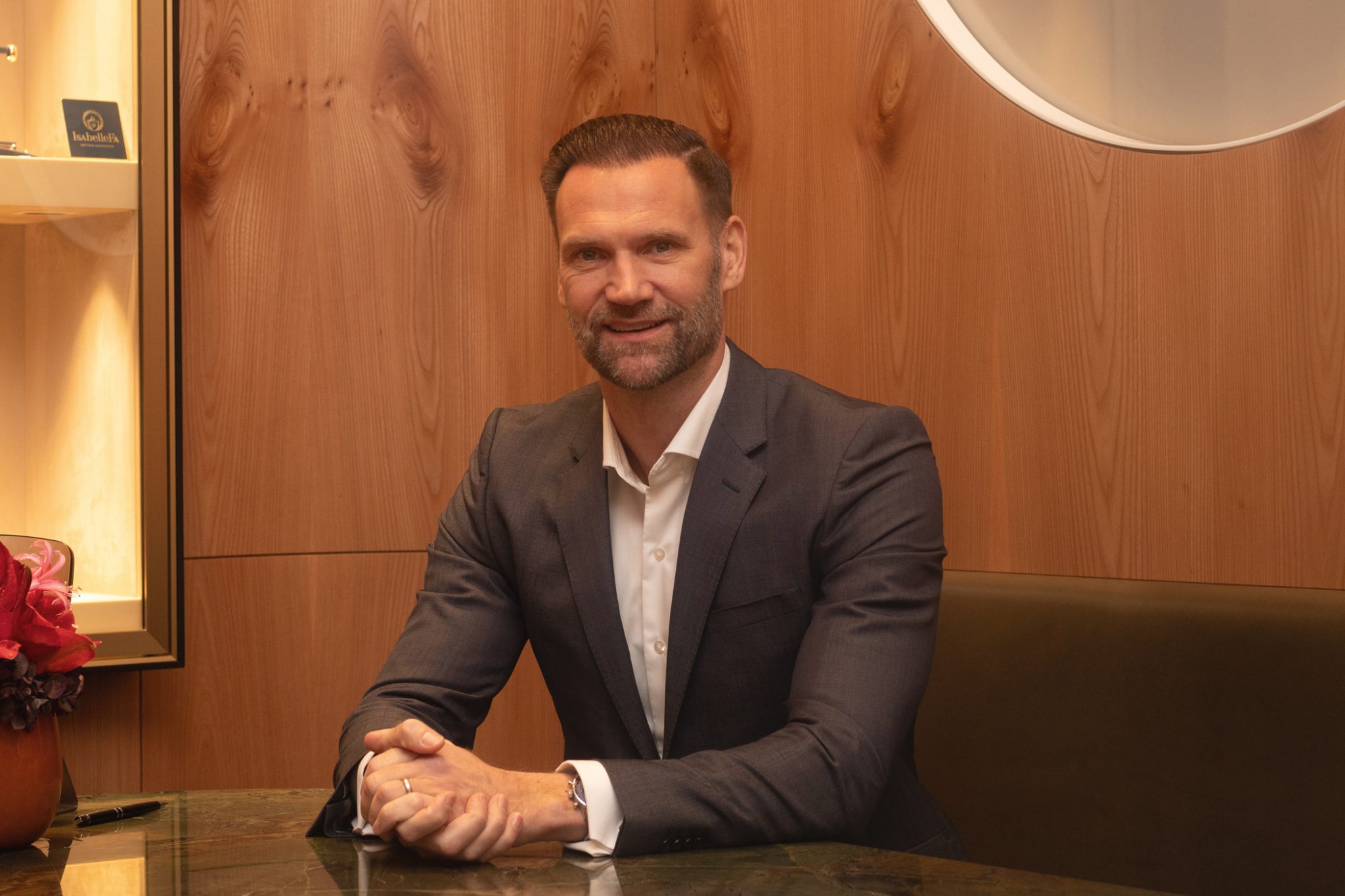
Of course, some customers have the products sent to their homes, but they often visit our stores again to make further adjustments or seek advice. I am firmly convinced that the advantage of having a direct service and contact person who accepts a product in the event of a problem, repairs it and gives our customers a sense of satisfaction, will not die out. Our customers trust that they are spending their money wisely with us, and this feeling is more difficult to convey when everything is handled online.
According to the study, more than one in two buyers (52 percent) said that they would like to buy their dream watch locally, from an authorised specialist retailer. In 2022, 58 percent still said they wanted to do this. What can Wempe do in the future to counteract this negative trend and survive in the digital age?
We need to utilise all channels. We have set up a comprehensive website, integrated an e-commerce business, and use various social media channels, for example, to reach, inform and inspire younger target groups. Nowadays, many customers find out about the latest trends and favourite items online in advance. The world has changed. Nevertheless, my feeling is that for certain products and topics, personal service on site is irreplaceable, and that is what we are here for. Wempe is present everywhere in Germany, as you can find us in the larger cities. In Germany, almost only Wempe can offer this combination of online and offline experiences, combining the advantages of both worlds.
In the last 12 months, there has been a boom in the opening of mono-brand boutiques for Swiss brands around the world: Chopard, H. Moser & Cie. and IWC Schaffhausen in Shanghai, Zenith in Riyadh, Panerai and TAG Heuer in New York. In Munich, too, brands are increasingly opting for mono-brand boutiques: JLC and soon Vacheron Constantin are opening their own shops. In your opinion, what is the advantage that Wempe can offer over a mono-brand boutique?
Our advantage is that we can offer alternatives and provide neutral advice without committing ourselves to a specific brand. We give our customer options, and compare and explain the pros and cons. This makes the advice more personal and gives customers the opportunity to consider different brands. This neutral presentation of the different product worlds ensures that we remain successful in the long term. Some customers may like the exclusivity of a mono-brand boutique, but there are also uncertainties and a desire for choice, which we can fulfil. I therefore think that both will work, perhaps not for every brand, but we can still always offer the more neutral and broader advice.
By 2030, the under-40s will make up a large proportion of customers in the luxury sector. What is Wempe Weinstrasse doing to attract and retain customers from the millennials and Gen Z?
We have recognised at company level that the target groups are changing. In the coming years, millennials and Generation Z will become increasingly important for the luxury goods segment. We are therefore continuously adapting our product range and our marketing campaigns. I myself have been active on social media for several years now, because visibility and discoverability play a crucial role. There is a youthful atmosphere in our shop thanks to the integration of many young employees. This is also reflected in our style of dress. Nobody expects me to wear a tie anymore.
We are also adapting the shop design and creating spaces that appeal to the younger generations. Although a jeweller is of course not comparable to a sneaker store, we offer products that arouse the interest of the new generations. For the younger generations, sustainability is very important and this is perfectly reflected in our products as they are extremely durable. What lasts longer than a mechanical watch, a gold bracelet or a natural diamond?
A more casual, cooler and more dynamic communication in all channels is therefore essential. This process is challenging, especially when it comes to products that require intensive consultation. The fifth generation of entrepreneurs is already at the start. Scott and his sister Chiara Wempe are responsible for business development, analysing the market and providing new impetus with the aim of making the Wempe corporate brand relevant, varied and inspiring for future generations.
Rolex has just bought your competitor Bucherer. How will this takeover change the luxury watch retail business? Could it even be an opportunity for Wempe?
Opportunities arise from every change, you just have to approach the change positively. The takeover seems to me to be primarily a purely protective measure for Bucherer in order to preserve its heritage and protect the company from the risk of fragmentation. It remains to be seen how the situation develops, but for me this act primarily reflects a long-standing partnership in which Rolex is taking Bucherer into its own family. Nothing changes at our end – the partnership remains in place and Wempe will continue to distribute Rolex watches.
In 2021, the Weinstrasse branch underwent a major refurbishment, transforming an already elegant shop into a feel-good location with Alpine flair. What’s next for Wempe Weinstrasse?
The remodelling of the Weinstrasse store in 2021 was a real gamble given the uncertain times of 2020. We now have to steer the business financially in such a way that the remodelling pays off in the end. We wanted to create a unique, modern Bavarian feel with our store in Munich on Weinstrasse in order to set ourselves apart from the competition. This was a very courageous decision by Kim-Eva Wempe, the managing partner, in view of the uncertainties brought about by the Covid pandemic. I still remember her words clearly: “We’re going through with it now, even if we don’t know how things will develop.” The reorganisation was not only urgently needed, but also a matter close to my heart.
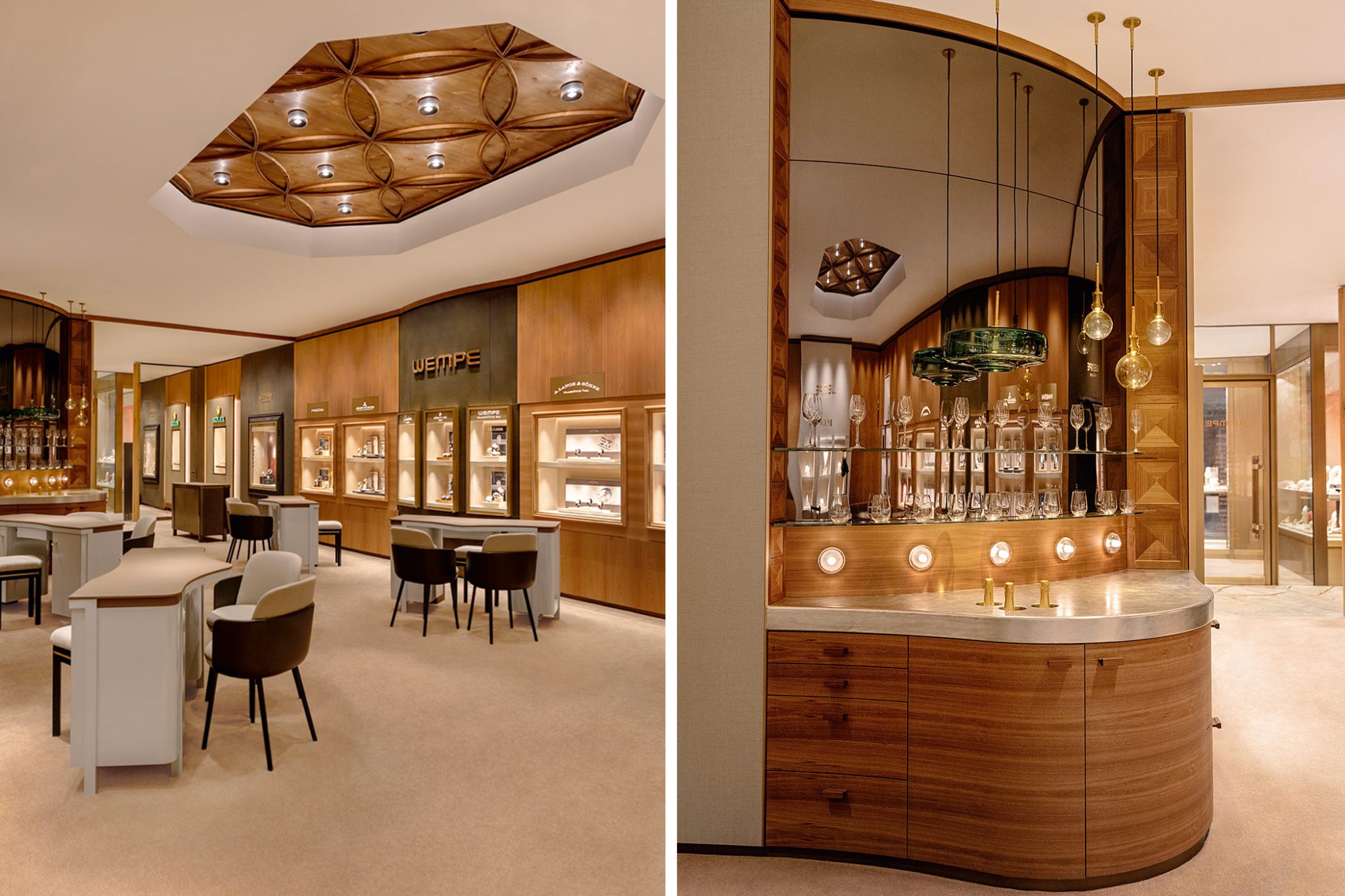
What’s the craziest thing you’ve experienced – in terms of buying a watch – at Wempe in the last 15 years?
There is an amusing anecdote that immediately comes to mind. Some time ago, a customer from abroad couldn’t decide which of the two Breguet tourbillons, worth €130,000 and €150,000 respectively, he should take. He praised the beauty of both watches, but he simply couldn’t decide which model to choose. At that moment, my saleswoman dared to suggest: “Why don’t you just take both?” When you think of tourbillons, you might not immediately think of buying two watches, but this idea developed in the customer’s mind and you could feel it start to tick in his head like clockwork. The result? He actually decided to buy both watches. An unexpected and truly remarkable moment, especially when it comes to watches in this price range. Sometimes it’s unique experiences like this that make the watch business so fascinating.
